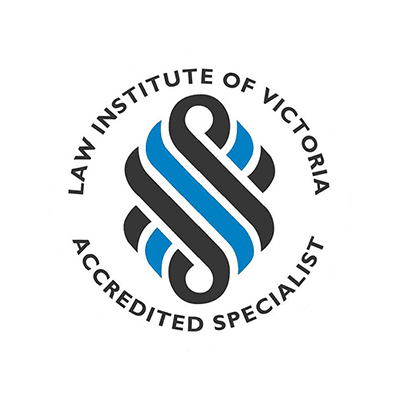- HOME
- About
- Our Team
- Resources
- Anti-Corruption
- Anti-Money Laundering & Counter Terrorism
- DEFACTO (DOMESTIC) RELATIONSHIPS
- LAND RICH DUTY
- LAND TAX IMPLICATIONS ON TRUSTS & ESTATES
- PAYROLL TAX GROUPING
- REAL ESTATE (PROPERTY) NOMINATION & NOVATION
- STAMP DUTY UNDER THE DUTIES ACT 2001 (VIC)
- TRANSFER FROM INDIVIDUALS TO COMPANIES
- STAMP DUTY & TAX CONCESSIONS FOR REAL ESTATE
- SPAM ACT
- ELECTRONIC PROTECTION
- NURSING HOMES & HOSTELS
- RETIREMENT VILLAGES
- DEBT RECOVERY
- COPYRIGHT & LICENSING
- Business & Corporate Succession
- BUSINESS & CORPORATE SURVIVAL AFTER DEATH
- BUY-SELL AGREEMENTS
- RETAIL LEASES ACT 2003
- DIRECTORS PERSONAL LIABILITY & TRUSTS
- SHAREHOLDERS & UNITHOLDERS RIGHTS
- DIRECTORS DUTIES & RESPONSIBILITIES
- CLERP9-AUDIT REFORM & CORPORATE DISCLOSURE
- ACCOUNTANTS & LEGAL PROFESSIONAL PRIVILEGE
- DIRECTORS & SHAREHOLDERS RIGHTS & OBLIGATIONS
- CORPORATE FAULT AND RESPONSIBILITY
- CORPORATE ASSESSMENT
- EXECUTION OF COMPANY DOCUMENTS
- RELIEF FOR OPPRESSION PREJUDICE OR DISCRIMINATION
- INITIAL PUBLIC OFFERINGS
- Asset & Wealth Protection
- EMPLOYMENT LAW & INDUSTRIAL RELATIONS
- ENVIRONMENTAL & CLIMATE
- EQUAL OPPORTUNITY
- ESTATE PLANNING, WILLS, & PROBATE
- STRATEGIC TESTAMENTARY TRUSTS
- SURVIVAL OF THE SMARTEST BUSINESS OWNER
- SIGNING & EXECUTING YOUR WILL
- TESTAMENTARY TRUSTS & GEARING
- WHEN SHOULD I MAKE A NEW WILL?
- WILLS & TESTAMENTARY TRUSTS
- THE LAWYER'S ROLE IN DECEASED ESTATES
- WEALTH (ASSET) PROTECTION & ESTATE PLANS
- ESTATE PLANNER
- ESTATE PLANNING CONSIDERATIONS
- ESTATE & SUCCESSION PLANNING APPRAISAL
- WILL YOU HAVE THE LAST WORD? (SHORT VERSION)
- CONSEQUENCES OF NOT MAKING A WILL (CASE HISTORY)
- EXECUTOR'S COMMISSION
- LEGAL ISSUES REGARDING WILLS & INTESTACY
- TESTATOR'S CONSIDERATIONS FOR PREPARING A WILL
- EXECUTORS' RIGHTS & OBLIGATIONS
- HAVING THE LAST WORD...
- FAMILY & MATRIMONIAL LAW
- Franchising
- BEHAN LEGAL GUIDE FOR THE FRANCHISOR
- GOVERNMENT GRANTS & SUBSIDIES
- LITIGATION
- LAND TAX
- IMMIGRATION & BUSINESS MIGRATION
- GUARDIANSHIP & ADMINISTRATION
- POWERS OF ATTORNEY
- PERSONAL PROPERTY SECURITIES ACT
- REAL ESTATE & CONVEYANCING
- REAL ESTATE AGENTS BE AWARE
- HERITAGE LAWS & IMPACT ON BUYING & SELLING
- VENDOR DISCLOSURE STATEMENT
- REAL ESTATE & CONVEYANCING TERMS & DEFINITIONS
- MOVING OUT CHECKLIST
- DUE DILIGENCE WHEN INVESTING IN PROPERTY
- OWNER BUILDER REPORTS
- NEVER ASSUME A CONTRACT IS STANDARD
- LIABILITY OF PROPERTY OWNERS & LANDLORDS
- OWNERS CORPORATION
- INVESTMENTS IN COMMERCIAL REAL ESTATE PROPERTY
- TAXATION
- SUPERANNUATION & PENSION FUNDS
- TRADE PRACTICES & FAIR TRADING
- TRADEMARKS & INTELLECTUAL PROPERTY
- TRUSTS
- TRADING TERMS & CONDITIONS
- Services and Referral
- International Services
- Client Briefings
- Contact Us
Different Powers of Attorney
POWERS OF ATTORNEY
A power of attorney is a legal document appointing one to act as legal agent (“Attorney”) who can make legally enforceable decisions for another person (“Donor”).
The Attorney can handle the Donor’s financial, legal affairs, and in some cases, make decisions that can affect both life and death of the Donor. Usually though, the power of attorney does not allow the Attorney to make personal life decisions, such as telling the Donor where he can live, how to live, or exercising powers of a parental nature.
WHO CAN BE AN ATTORNEY?
The Attorney can be a relative, friend, or a solicitor. The Attorney must be competent and understand the Donor’s requirements, expectations, and instructions. Therefore, the Donor must have confidence and trust in the Attorney.
Attorneys can only act in accordance with their instructions and according to the type of power of attorney given by the Donor. There are different types of appointments available to Donors. An Attorney can handle everything, or just deal with specific issues for the Donor, but must always act honestly, and in accordance with the specific power of attorney.
Different Powers of Attorney
GENERAL POWER OF ATTORNEY
This legal document gives an Attorney authority to do anything that a Donor can legally authorise an Attorney to carry out, including making financial and legal decisions.
It is a limited power of attorney because it ceases to have any legal effect when the Donor dies, becomes bankrupt, or incapable of making his own decisions.
In certain circumstances a Donor can authorise an Attorney to carry out his duties as director in a company, but only if the company’s constitution allows the Donor to appoint such an Attorney.
LIMITED POWER OF ATTORNEY
A Donor can limit the powers or authority of the Attorney by:
1 Granting the authority for a limited time
2 Allowing its use for specified purposes or excluding specific purposes
ENDURING POWER OF ATTORNEY
Unlike a General Power of Attorney, it does not cease to have legal effect when the Donor becomes incapable of making his own decisions. It continues to exist and have legal effect even if the Victorian Civil and Administrative Tribunal declare the Donor incapable of making his own decisions.
It does cease on bankruptcy, death, revocation by the Donor (whilst one is capable of making decisions), or by a revocation order of the Victorian Civil and Administrative Tribunal if the Donor is incapable of making his own decisions. The use of an Enduring Power of Attorney is an effective planning and management tool if one becomes incapable of managing their business or personal affairs.
ENDURING POWER OF ATTORNEY (MEDICAL TREATMENT)
The Donor appoints an Attorney who can decide on medical treatment once the Donor is no longer capable of making decisions. The Attorney can consent to, or refuse medical treatment, such as: operations, administration of drugs, and other medical treatment that is not palliative care (i.e. treatment that is not a procedure for the relief of pain and suffering or the provision of food and water).
A Donor can cancel this power of attorney whilst capable of making decisions, but if one becomes incapable of making decisions then only the Victorian Civil and Administrative Tribunal can revoke this power of attorney.
IRREVOCABLE POWER OF ATTORNEY TO SECURE COMMERCIAL TRANSACTIONS
Lenders or landlords often use this power of attorney in commercial transactions, such as loans or leases. This power of attorney, which is usually set out in the loan or lease documents, allows the other party to deal with the security property or parts of a business or company when there is default and secures a proprietary interest, or the performance of an obligation under the particular transaction.
The Donor cannot revoke or cancel this authority without the other party’s written consent. Death, incapacity, or bankruptcy does not cancel this power of attorney, and it continues as long as the other party has proprietary interest, or the Donor must pay or honour an obligation to that party.
ENDURING POWERS OF GUARDIANSHIP
An Enduring Guardian can make health care and lifestyle decisions if a Donor is unable to make those decisions due to illness or disability. One can appoint an Enduring Guardian to complement an existing Power of Attorney. If there is a conflict between an attorney under an Enduring Power of Attorney and an Enduring Guardian about decisions regarding health care or lifestyle issues, the decision of the Enduring Guardian prevails.
There is an overlap between the role of an Enduring Guardian and an Attorney appointed under an Enduring Power of Attorney (Medical Treatment). If there is a conflict about a medical treatment issue, the Attorney makes the decision and not the Enduring Guardian.
Formal Requirements for Powers of Attorney
SIGNING THE POWER OF ATTORNEY
The Donor must sign and have this legal document witnessed for it to be legally effective. The Attorney cannot sign as a witness, but it is prudent to include the Attorney’s specimen signature in the document, which may prevent fraud and unauthorised persons purporting to act as Attorney.
USING THE POWER OF ATTORNEY
The Attorney should use a certified copy of the document when acting for the Donor. A copy of the power of attorney is only acceptable if, a solicitor certifies the copy under the Instruments Act.
CANCELLING THE POWER OF ATTORNEY
A Donor can cancel or revoke most powers of attorney by giving the Attorney proper notice of revocation.
NEED MORE INFORMATION
Behan Legal assists and advises on these important issues. For an appointment, call 03 9646 0344.

SITE MAP
<< Website Access
<< Knowledge Library
<< Services & Referral
<< International Services
<< Client Briefings
<< Contact
MELBOURNE OFFICE
Level 1, 270 Bay Street
Port Melbourne Victoria
Australia 3207
BEHAN LEGAL
Telephone:
(+61)3 9646 3334
POSTAL ADDRESS:
PO Box 745 Port Melbourne Victoria
Australia 3207

